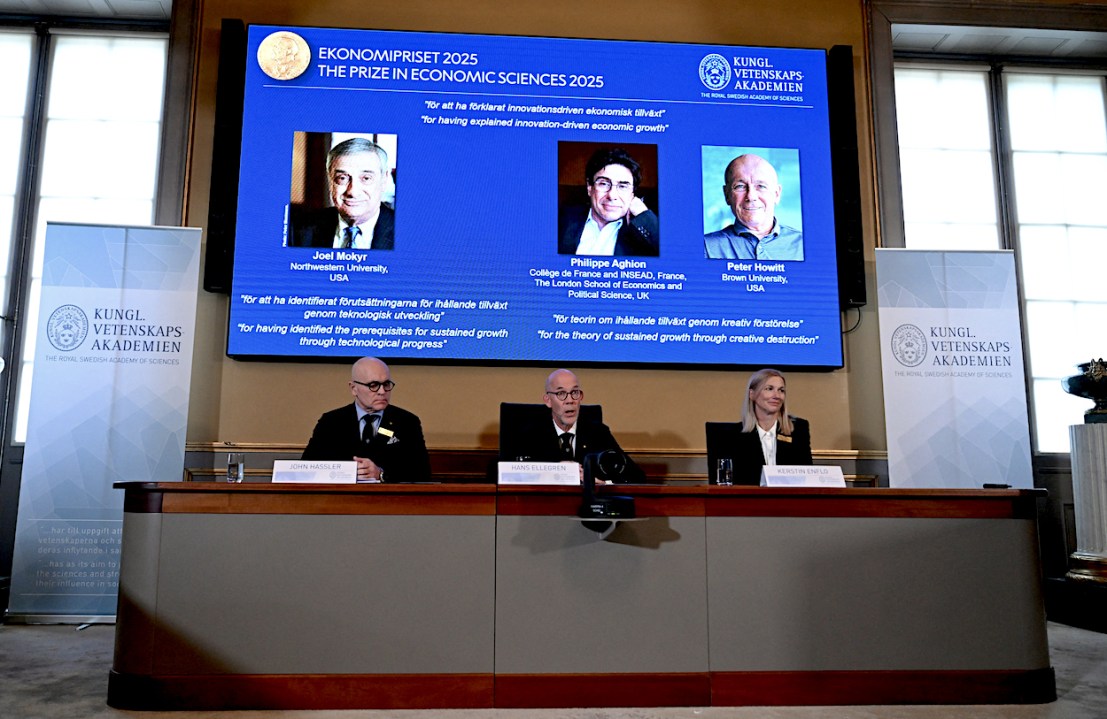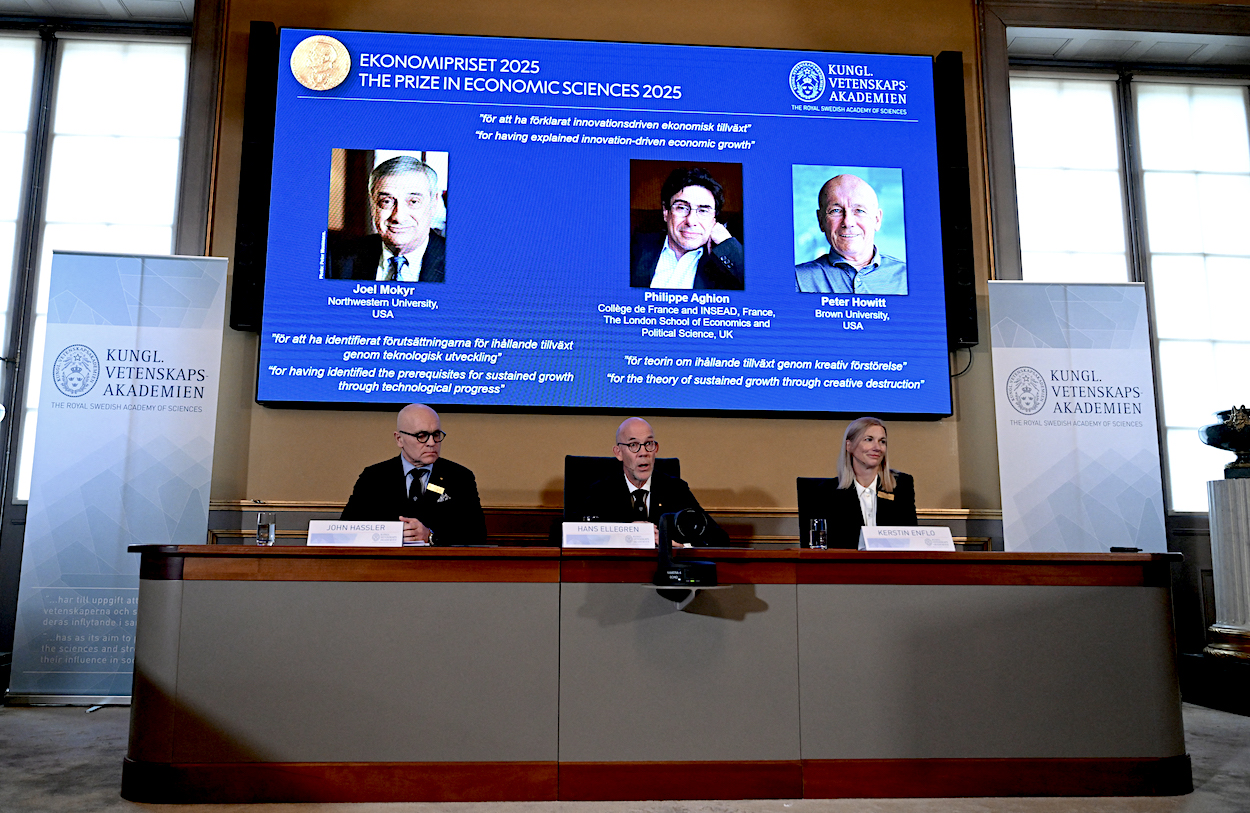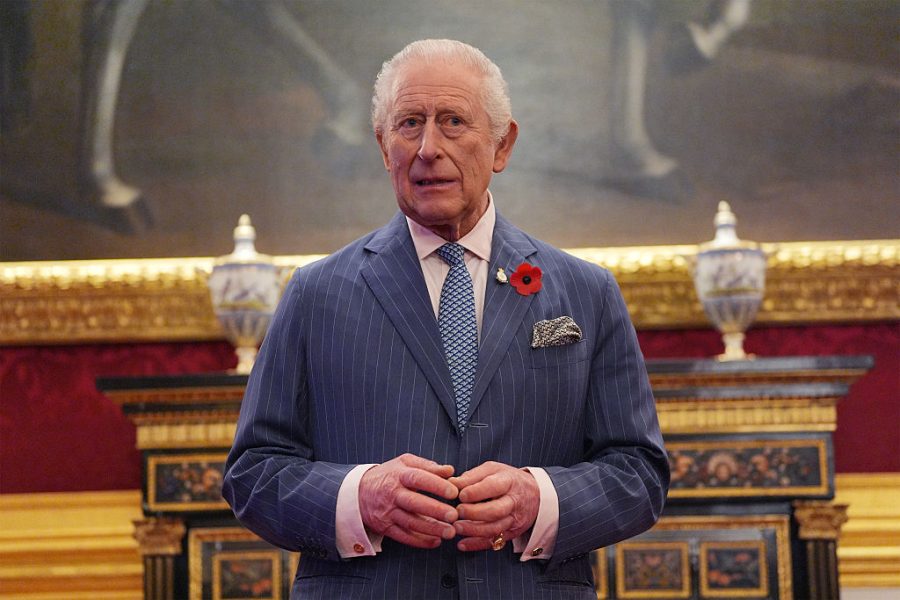When Friedrich Hayek won the Nobel Prize, his entire lecture – titled ‘The Pretence of Knowledge’ – was an attack on economics itself. He believed economists were more worried about looking scientific than actually being scientific. The lecture was so controversial that Economica, the LSE journal that had published Hayek’s work since he was a young professor, refused to print the speech unless he made changes. Hayek, of course, refused.
But that was the spirit of the Economics Nobel back then. It rewarded rebels. Since, the prize has become a monopoly for the ‘good boys’ of academia; those who publish in the top journals, collect citations and perfect their h-index. Today, the Nobel Prize in Economics was awarded to Joel Mokyr, Philippe Aghion and Peter Howitt for their contributions to the study of economic growth.
Aghion and Howitt’s work was about the mathematisation of Schumpeter – their contribution wasn’t about new ideas, but a repetition of old ones in a new language. Mokyr’s work, on the other hand, was about the culture of growth – a new way of thinking, but again no rebellion.
Once upon a time the Nobel uplifted people who weren’t taken seriously, who weren’t even considered economists, but who changed the way we think about society. Take Elinor Ostrom, the first woman to win the economics Nobel. She’d never studied economics – at any level. Even after she won the prize, some economists insisted she shouldn’t be counted as one of them. But her work transformed how we understand the management of common resources.
Ostrom looked beyond textbooks and examined how, in real life, communities manage shared natural assets. By virtue of being an outsider, she wasn’t blinded by the paradigm or chasing citations for her next paper. She could see things that insiders could not. Her research forced economists to rethink the so-called ‘tragedy of the commons’.
The story of Ostrom isn’t unique. Daniel Kahneman never took an economics class, yet he won the Nobel Prize in Economics because he questioned the very foundation of the neoclassical model – the assumption of human rationality – by bringing psychology into the conversation. Herbert Simon was another outsider, a political scientist who challenged the myth of homo economicus long before Kahneman. He wasn’t taken seriously among economists but won the Nobel in 1978. The Committee praised his contribution for ‘combining different scientific disciplines and considered new factors in economic theories.’
When I say the Nobel Prize needs to be awarded to more ‘outsiders’, I don’t mean Gary Stevenson types, or fashionable academic critics who claim economics is capitalist propaganda. I mean those who genuinely challenge the consensus and risk their careers doing so. There’s always an incentive in academia to do what everyone else is doing – only a bit more – and get rewarded. There are plenty of prizes for being the playing along in academia. Those who stand against the current rarely get recognised.
This tension between the academic ‘good boys’ and the rebels isn’t new. The very first Nobel Prize in Economics went to Paul Samuelson; the archetypal academic insider. An MIT economist, Samuelson made enormous contributions to the mathematisation of economics. His obsession with turning economics into an exact science was such that he dismissed other approaches as unscientific. When asked about Ronald Coase’s theories, Samuelson famously replied: ‘Where’s the theorem?’
Economics needs to rediscover its spirit of curiosity
Yet both Samuelson and Coase won the Nobel. One was fascinated by new scientific tools; the other warned that we must ‘save economics from economists’. Coase’s contribution wasn’t mathematical at all, and it’s doubtful his work would even be published in a top journal today. Late in life, at the age of 101, Coase wrote: ‘The degree to which economics is isolated from the ordinary business of life is extraordinary and unfortunate.’
So, what’s to be done? Perhaps a return to Adam Smith’s kind of moral philosophy? When Smith wrote about economics, there wasn’t even such a thing as ‘economics’ as a discipline. Even when Hayek studied at the University of Vienna, economics was still a sub-branch of law. Smith’s moral philosophy embraced psychology, economics and ethics together. The point isn’t to abandon specialisation (it has its benefits) but to recognise that specialisation alone isn’t enough.
As James Buchanan, another Nobel outsider, once wrote: economics needs to look to its scientific neighbours. To rediscover the spirit of curiosity that Smith had and that Hayek, Coase, Simon, Ostrom, and Kahneman embodied, economists must learn once again to cross borders. And for that to happen, the economics Nobel needs rebels.








Comments